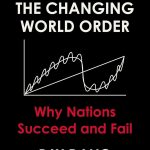
Customers say
Customers find the book thought-provoking, with one review describing it as the most complete work on the perils of religious beliefs. Moreover, the writing style is praised for being eloquent and easy to read, and customers consider it a must-read. However, the argument quality and faith aspects receive mixed reactions, with some appreciating the strong arguments while others disagree. Additionally, the humor receives mixed feedback, with some enjoying the good jokes while others find it over-the-top and harsh.
Make It Yours – See Your Price On Amazon!
Your Sales Price $17.95 - $13.59
A quick rundown of this product’s key features:
“The End of Faith articulates the dangers and absurdities of organized religion so fiercely and so fearlessly that I felt relieved as I read it, vindicated….Harris writes what a sizable number of us think, but few are willing to say.”―Natalie Angier, New York Times
In The End of Faith, Sam Harris delivers a startling analysis of the clash between reason and religion in the modern world. He offers a vivid, historical tour of our willingness to suspend reason in favor of religious beliefs―even when these beliefs inspire the worst human atrocities. While warning against the encroachment of organized religion into world politics, Harris draws on insights from neuroscience, philosophy, and Eastern mysticism to deliver a call for a truly modern foundation for ethics and spirituality that is both secular and humanistic. Winner of the 2005 PEN/Martha Albrand Award for Nonfiction.
Our Top Reviews
Reviewer: J. S. Parker
Rating: 5.0 out of 5 stars
Title: Beyond Religion
Review: It is ironic that Sam Harris begins his book with a description of a young man bombing a bus in the heart of a city. Though published in 2004, the description appears to fit very well the recent London transit bombings. And this is precisely why this book demands our attention in this time of growing radical, religious fundamentalism of whatever variety.Sam Harris presents as a quiet, thoughtful, reflective person in television interviews and public presentations. His background is in philosophy and he is now completing his doctorate in neuro-science. He presents his analysis of religion in a deliberate, careful, rational manner. Yet the result is powerful.The book his two major themes. The first part is comprised of a critique of the irrational basis of religious faith and the often terrible consequences of these beliefs.This is not a tentative or hesitating criticism. At a time when the negative effects of religion and religious thinking are becoming increasingly visible, this book serves notice that making accommodations to religious thinking serves only to allow it to perpetuate its destructive influence. A belief that killing innocent people is responding to the will of one’s God is not an idea to be given credence. And yet it flows directly from religious ideology and scripture.After surveying the current effects of religious beliefs, Harris then explores the nature of belief and how it relates to reason by providing an excellent review of the criteria and process of determining truth–or what in philosophy is called epistemology.Building on this analysis, he then reviews the effect of irrational belief in the history of Christianity with the Inquisition, the Cathar persecution, the witch hunts and finally the Holocaust. His point is that the moderation and toleration that is generally accepted today is not a result of the religious belief itself, but the modulating influence of the Enlightenment and the political separation of church and state that followed. This is followed by a detailed chapter analyzing the rise of radical and violent Islam. But lest we think we are immune from the effect of religious fundamentalism, he points out its current effect over issues such as the Ten Commandments controversy, the role of “faith-based” legislative efforts, the attempt to legislate what had previously been areas of private freedom, the movement to control embryonic stem cell research, and, of course, the abortion debate.Harris is particularly critical of what he calls the “myth of moderation” which flows from the postmodern viewpoint that all ideas are relative and none can be held truer or better than others.Moderates do not want to kill anyone in the name of God, but they want us to keep using the word “God” as though we know what we were talking about. And they do not want anything too critical said about people who really believe in the God of their fathers, because tolerance, perhaps above all else, is sacred. To speak plainly and truthfully about the state of the world–to say, for instance, that the Bible and Koran both contain mountains of life-destroying gibberish–is antithetical to tolerance as moderates currently conceive it. But we can no longer afford the luxury of such political correctness. We must finally recognize the price we are paying to maintain the iconography of our ignorance.The second part of the book is what makes it so significant This is not just another attack on the irrationality of religious faith. Harris acknowledges the legitimacy of the issues that religion attempts to address.What makes one person happier than another? Why is love more conducive to happiness than hate? Why do we generally prefer beauty to ugliness and order to chaos? Why does it feel so good to smile and laugh, and why do these shared experiences generally bring people closer together? Is the ego and illusion, and, if so, what implications does this have for human life? Is there life after death? These are ultimately questions for a mature science of the mind. If we ever develop such a science, most of our religious texts will be no more useful to mystics than they are now to astronomers.First he addresses ethics. What kind of ethics is possible without a faith in a supernatural God? One based in reason and that incorporates our growing knowledge of ourselves at the level of the brain. Where currently there is little consensus on moral issues, a sustained inquiry will force the convergence of various belief systems as it has done in other sciences. Moral relativism will no longer make sense (“we can’t really judge the suicide bomber”) because we will have developed verifiable criteria for moral and ethical behavior. Harris explores a number of contemporary issues from this perspective including terrorism, torture and pacifism. Furthermore, ethics is intimately connected with spirituality.In the next chapter he reframes the entire arena of spirituality from the religious to the scientific in the newly emerging field of consciousness studies. He is hesitant to use the words spirituality or mysticism because “neither word captures the reasonableness and profundity of the possibility that we must now consider: that there is a form of well-being that supersedes all others, indeed, that transcends the vagaries of experience itself”. Specifically he refers to those traditions that identify spirituality with consciousness itself–with the observer of content rather than the content itself, which frees us from the vicissitudes of experience.Our spiritual traditions suggest that we have considerable room here to change our relationship to the contents of consciousness, and thereby to transform our experience of the world. Indeed, a vast literature on human spirituality attests to this. It is also clear that nothing need be believed on insufficient evidence for us to look in this possibility with an open mind.It is tempting to quote whole sections of this final chapter in which Harris rescues spirituality from religion. He explores the nature of consciousness and the various efforts within traditional religions to change the nature of consciousness through sustained introspection and the refinement of attention. He applies this to an analysis of the nature of the self–how it arises, what sustains it and how it can be transcended. He compares Eastern to Western philosophy and religion and questions why the Eastern analysis appears to be so much more sophisticated. And finally he describes meditation as a form of introspection in a section which can serve as a primer to meditative practice. All of this is done from an empirical perspective informed by modern studies of consciousness rather than from religious doctrine.The only lack in this book is the omission of the psychodynamic explanation for faith as originally proposed by Freud and more recently in the book The Psychological Roots of Religious Belief by M.D. Faber. Harris takes a more cultural and societal perspective.Few books describe more clearly the transition to a post-religious era and establish so clearly why it is of such importance.The days of our religious identities are clearly numbered. Whether the days of our civilization itself are numbered would seem to depend, rather too much, on how soon we realize this.
Reviewer: Stedes
Rating: 5.0 out of 5 stars
Title: Critically Important Book – Highly Recommended
Review: Courageous to write in this current atmosphere with rise of social conservatives based on “American Christian Values”. If you are a Christian or Muslim. You will find this book difficult to stomach. In your face writing. Very direct and Blunt “Theology is an extension of human Ignorance”, articulate and easy to read. States his position clearly and argues his point well. This is an attack on Monotheistic Religions – primarily Judeo-Christian religions (Islam, Judaism and Christianity) throughout the world. He makes a compelling case that we cannot grow into a more civilized society unless we shed our primitive and illogical believe systems. Highly recommended reading. I thought his analysis of our illogical religious views and related actions were right on, although I did not agree completely with him on all his points, it stimulated me to think and rethink some of my positions. If you have strong liberal or conservative views, your position will be challenged. He is an independent thinker and he is not going to feed you what you want to hear. This is what a good book should do. Important and relevant book and we need more books like this. Thus the five stars. Loaded with memorable quotes. I found myself re-reading sections and sentences and then close the book and stare in space as I comprehend a new idea. Some of the criticism here in Amazon review is fair. He does come across as an “atheist fundamentalist” as one reviewer wrote. Sam Harris rightly criticizes needless wars in the name of promoting religion, but he seems to promote wars in the name of fighting religion. I find this a bit hypocritical. I am not sure he is any better than the religious zealots he criticizes. Where I take exception and I feel his argument is the weakest, is his that He is too forgiving on the nature of “intent” and war itself as being justified to fight ignorance. In his view, we (the US) at war are more humane than Islam at war because of our “intent”. We do not intend to kill innocents (they are collateral), where as Islamic people at war do. I think this is a narrow definition of intent and too forgiving. War by its nature is inhumane regardless of intent. And whether your loved one was killed intentionally or not, it doesn’t make it any easier to accept or any more justifiable or make you more rightous. In addition, collateral damage is acceptable as long as it is the other side that is experiencing it. If for example, the Iraqi resistance was able to reach our shores and retaliate, and caused collateral damage of US citizens, then our view of the war and our interest in ending it sooner will rise. So what is the morality of the war? Also, if collateral damage is more humane than targeting civilians intentionally, then no civilian deaths is more humane than collateral damage. We should be rising to the occasion (or evolving) where wars are no longer legitimate. When the US is able to keep its citizenry detached from the reality of the war, it causes prolonged suffering of the other side. Also Harris does not address “cause and effect” and “ends justify the means” foreign policy. Don’t we need to be held accountable for our actions? But the US has more at its disposal than military. It is the intent of the US to use its economic might to keep nations in poverty. He does not address this…Recommended reading “Confessions of an Economic Hit Man” He leaves the impression that he only reason Islamic terrorists are attacking us is for religious reasons only and they are stuck in the 14th century beyond any sense of reasoning. The Koran is rooted in violence and justifies them attacking us – The infidels. As a result, the only remedy is to wage a war (with justifiable collateral damage) against Islam. I think he goes too far here. The Koran explains their hideous actions, but not their real motives. I think he underestimates there is a real war against the west based on what we do, not what we believe. After all, there are no terrorist attacks in South America, Canada, Japan, Eastern Europe or Australia. Yet they are all Infidels. The US and Western Europe have a long history in the Middle East of occupation, puppet governments, support for Israel, military intervention and oil interests that cannot be discounted as the reason. Now the war in Iraq has given the terrorist more reason to hate us. He gives the impression that the war on terror can only be won militarily through war. I agree the military has a role to play, but it is not enough. He does not adequately address other factors in combination with the military action; cultural change in the Middle East and a change in US foreign policy. Recommended Reading; Imperial Hubris Why the West Is Losing the War on Terror. In place of religion, Harris proposes a Buddhist view of life. He does not go into detail on Buddhism but touches briefly on some of its tenets with regard to reason, logic, our thoughts and consciousness. For the intellectually curious, he may inspire you to learn more about this relatively unknown religion.
Reviewer: John D. Michael
Rating: 5.0 out of 5 stars
Title:
Review: Al mio aviso dobbiamo tutti leggere questo libro. Il signore Harris offre una spiegazione del problema il più grave del nostro mondo e della nostra sopravivenza – anzi del rischio di non sopravivere.Sam Harris goes beyond the liberation of previous text which discuss why we should all liberate ourselves from religion. It is not an easy read, but he using a clear, wonderfully logical, and also enteretaining style explains the grave risks that we face from groups with faith based views of the world comparable to the frightenting mentality of the Middle ages but with access to even more frightening armaments of the twentieth century. We are just starting the descent from a politcally based atomic standoff only to face an even more frightening religiously based beligerence.I think everyone should read this book.
Reviewer: MK
Rating: 5.0 out of 5 stars
Title:
Review: Great read but the only divide I do not agree with is ‘we’ and ‘they’ in the earlier chapters. Love the chapter on consciousness.
Reviewer: Sphex
Rating: 5.0 out of 5 stars
Title:
Review: It is a peculiar fact that the quickest way for an atheist to rile a person of faith is to take an interest in their holy book. Simply quoting a few passages from the Bible, for example the ones dealing with burning witches or selling daughters into slavery, will be enough to label you “militant” or “fundamentalist”, and you will be accused of “reading out of context”, something the believer, of course, never does. In this brilliant and important book, Sam Harris not only quotes chapter and verse to highlight some of the terrible things the Bible and the Koran actually say, he gets to the heart of what faith is (it’s “what credulity becomes when it finally achieves escape velocity from the constraints of terrestrial discourse”) and why it is dangerous and should no longer be held in high esteem (“while it has never been difficult to meet your maker, in fifty years it will simply be too easy to drag everyone else along to meet him with you”).It’s an uphill task. Having a strong faith in one or other of the many gods on offer (apart from the ones, like the flying spaghetti monster, that “obviously” do not exist) is often seen as a good thing, even by those who are not themselves particularly religious. Religion is widely assumed to be the ultimate source of justice, decency, morality, discipline, and meaning in life. In the wake of a suicide bombing, however, “extremist” replaces “pious” as the adjective of choice by politicians and clerics, who assert that theirs is a religion of “peace” and “community” and in no way responsible for acts of violence or sectarianism. So reflexive is this response that it may well constitute a sincere belief. Harris has an important message for anyone who takes comfort in such platitudes. One of the central themes of his book “is that religious moderates are themselves the bearers of a terrible dogma: they imagine that the path to peace will be paved once each of us has learned to respect the unjustified beliefs of others.” These same religious moderates, “by failing to live by the letter of the texts, while tolerating the irrationality of those who do… betray faith and reason equally.”Sooner or later in any debate involving the devout, they will demand that their unfounded religious beliefs are tolerated and respected, but what they really want is for these beliefs to be privileged and put beyond criticism. Any adverse comment is quickly labelled an “insult” and therefore to be neither tolerated nor respected. The fatwa on Salman Rushdie was a high-profile example of this widespread double standard, and it is a chilling fact that “the justice of killing apostates is a matter of mainstream acceptance, if not practice,” among Muslims (better wait until Sharia law is in force before gathering the stones). “If a Muslim renounces Islam, even if a new convert reverts to his previous faith, the penalty is death.” Respect? Tolerance? The clue to Islam’s real attitude is in the meaning of the word: submission.Any religious person requesting that their beliefs be tolerated is guilty of hypocrisy, since intolerance is “intrinsic to every creed”: all other traditions “are mere repositories of error or, at best, dangerously incomplete.” In what sense does a Muslim respect or tolerate the Christian belief in the resurrection? In what sense does a Christian respect or tolerate the Muslim belief that “Muhammad ascended to heaven on a winged horse”? Respect and tolerance are secular, not religious, values.On the science versus religion (or reason versus faith) debate, Harris is in no doubt which wins when it comes to advancing knowledge. While religion passes down ancient ignorance as though it contained primordial truths, science “represents our most committed effort to verify that our statements about the world are true”. The attitude of an authoritarian church toward science is well-known, and Harris reminds us that “Galileo was not absolved of heresy until 1992”. Less well-known is the incredible fact that “not a single leader of the Third Reich – not even Hitler himself – was ever excommunicated”. “This inversion of priorities” – the Catholic church turning a blind eye to genocide while getting its theological knickers in a twist over sex – “falsifies our ethics”.It’s easy to see how science has replaced religion in explaining why the world is the way it is (notwithstanding the depressing numbers of creationists who still roam the planet, foaming at the mouth). It takes a little more effort to see how “a rational approach to ethics” can replace the moralizing and sanctions-based stance of religion (such an approach “becomes possible once we realize that questions of right and wrong are really questions about the happiness and suffering of sentient creatures”). Most intriguing of all, however, is the possibility that faith and religion are in fact obstacles to a spiritual life and to mysticism. To the surprise of some, perhaps, Harris admits that “there is clearly a sacred dimension to our existence, and coming to terms with it could well be the highest purpose of human life.”The word “spirituality”, however, has become debased in our culture. It’s what “cretins have in place of imagination” as Charlie Brooker puts it, and Harris agrees that the term has “many connotations that are, frankly, embarrassing.” But, after two hundred pages exposing the preposterous claims of religion and debunking faith, he’s not about to jeopardize his atheist credentials. It must be possible, he argues, to reclaim spirituality from the confusions of faith, “to bring reason, spirituality, and ethics together in our thinking about the world.””Claiming to know things we manifestly do not know” is never justified. “Whenever a man imagines that he need only believe the truth of a proposition, without evidence… he becomes capable of anything.” Dostoyevsky and his poputchiks are wrong: when you stop believing in God, you are likely to become more, not less, discriminating in your beliefs.
Reviewer: Tim
Rating: 5.0 out of 5 stars
Title:
Review: Sam Harris is one of the leading proponents of what has been dubbed the ‘New Atheist Movement’, in good company with the likes of Richard Dawkins, Penn Teller, Lawrence Krauss and the late Christopher Hitchens–not even a movement, per say, but rather a like-minded bunch of non-believers who just happen to feel the same about religion, whether it be through their intellectual reason, their scientific backgrounds, or quite often both. Like his atheist friends he has written and spoken extensively on the topic, to much acclaim from people like myself–once too afraid to ‘come out’ about our atheism.For The End of Faith, Harris tries something quite refreshing and bold. Many before him have argued that morality is not the exclusive domain of the believer, but here the author dares to suggest that, along with our right to claim a religion-free morality, perhaps spirituality is not really a bad word at all. Nor is it, like the moral codes of societies, the property of churches, mosques, synagogues, shamen, priests, and mullahs. By first overcoming the shackles of irrational faith, the individual can employ reason to reach a clarity of mind and self. Essentially, it’s a kind of spirituality that can be found beyond the barriers of centuries old beliefs and impositions that merely hinder mental freedom.Of course, the task Sam Harris achieves with this book is to carefully, and necessarily at great length, mine the sources of the very hindrances that have battled to enslave the voices of reason. These sources are of course the holy books that have inspired both compassion and irrational passion, The Holy Bible and The Quran. We have been constantly assured, Harris reminds us, of how these are religions of peace, despite the centuries of bloodshed spilled in their names. And yet the evidence of the horrors, the ‘god’-sanctioned violence, the injustices and the enslavement of the free–physically and mentally, are all there in these holy books. No matter than much of the contents of these powerful scriptures has been twisted and interpreted, and reinterpreted to a great fault, resulting in the endless suffering of millions upon millions of innocents. It’s bad enough that the pious cherry-pick the good bits in their favour; but then they simply go and ignore the ugliness, or use it to support their acts of violence on others.One of the points that Harris raises is how liberals, people much like himself, like me as well, have failed by granting religion its very own raison d”tat, all because of a comfy multiculturalism–however well-meaning, and not necessarily failed, but abused by the very individuals we have sought to protect from persecution. A bit of biting the hand that feeds. We liberals, Harris asserts, have misguidedly felt that the good folks among the religious can reign in the bad. Unfortunately it has not usually worked out this way, and perhaps reducing it all down to religion as a cultural right, a custom, is where the left has failed.All it takes is a young boy to strap on some explosives, walk into a market full of innocents, children naturally included, and blow himself up with the promise of greater things in the afterlife. So his elders, his religious leaders, his holy book, tell him so. In an instant scores of lives are destroyed in this single act.Sam Harris, like anyone on the left or right, calls this terrorism, which it is. However, he insists that the sole drive of the modern-day terrorist is his faith. Where I partly disagree with his criticism of people like Noam Chomsky, who have long-argued that foreign policy is at least in part responsible for many acts of terrorism, I do find his argument that religion is a potent force that drives people to commit terrorist acts.Harris provides faith driven examples of terror from the Inquisition through to and including what is commonly perpetrated by those of the Muslim faith. The evidence of the required punishment for straying from or offending faith litters both the Bible and the Quran, but it would seem that Islam’s holy book is likely the nastier in terms of the sheer volume of calls to death to the infidel. To be fair, he raises a very good point, with citation after citation from the Quran, which do nothing to back the claim that Islam is a religion of peace.Another thought-provoking point Harris addresses, and perhaps cleverly avoids taking sides, is how torture against alleged terrorists is surely no different from the horror we politely label collateral damage in times of conflict and war. It’s hard not to come away with a feeling that Harris thinks torture, long considered precisely not what civilized nations ought to be engaged in, might at times be acceptable–especially when comparing it to the usually unintended civilian losses of war. How can we not call both horrors, when lives are damaged or lost all in the name of a good fight? I personally fall on the no-torture side, but his examples give good cause to think deeply about the end results of both collateral damage and pain-inflicting interrogation. The conclusion is really up to you, the reader, to decide.Sam Harris has a very lucid style of writing, and a tireless attention to detail, leaving no stone unturned in his effort to champion reason over faith. The at times lengthy footnotes are excellent proof of this. The End of Faith is built upon extensive research, and the very tool he champions, which is at our disposal from the moment we are aware of our thoughts. Refined, reason is a powerful foe to the centuries-old burdens of sin, promises of paradise beyond death, the miracles that never seem to take place in the modern era, but remain the stories of old, stories that increasingly have lost their weight.Up against the mighty tripartite of world religions, Harris also proves, Buddhism is virtually free of the calls to death, the enslavement of other, the vengeful, wrathful sky-god. Here is where he suggests spirituality can be a reachable goal. You don’t have to be a Buddhist, but you do have to be aware, in tune with your inner self. There, you will find the building blocks of a faith-free existence. Morality, well, we get that already.The End of Faith: Religion, Terror, and the Future of Reason is a compelling read, particularly but not exclusively to the atheist. For the believer, it presents a challenge that is still surmountable; for the atheist, it is both comforting and enlightening. This book is a powerful and necessary argument for reason over faith
Reviewer: Michael Murauer
Rating: 5.0 out of 5 stars
Title:
Review: Sam Harris diskutiert und belegt ausführlich, daß der Islam eine totalitäre Gefahr für die moderne Welt darstellt und einer toleranten Uminterpretation größere Schwierigkeiten im Weg stehen als bei anderen Religionen. Als Kernproblem des islamischen Terrorismus wird die lebensverachtende Jenseitsorientierung unnachgiebig bloßgestellt, denn nur sie erklärt, warum auch gut ausgebildete und sozial gut situierte junge Menschen zu fanatischen Selbstmordattentätern werden können. So weit,’ so wenig ungewöhnlich, wenn auch hier besonders überzeugend dargestellt. Aber Harris geht in erfrischender Weise weiter: Er attackiert das religiöse Denken als solches. Die religiös Moderaten tragen eine Mitschuld daran, daß wir der Expansivität des Islam nicht überzeugender entgegentreten, denn ihr Denken ist von der gleichen Art: Glauben an den Orientierungswert alter Bücher, Annahme von Überzeugungen ohne oder gar entgegen guter Gründe. Ich sehe das genauso. Die Appeasement-Politik gegenüber der Religion à la Habermas ist nur zeitgeistige political correctness. Aber was erhofft sich Harris? Glaubt er wirklich, unter der Bedrohung durch einen expansiven Islam werde sich die Menschheit in kurzer Zeit von ihrer evolutionär und kulturell so tief verankerten tribalistischen Religiosität abwenden? Radikale Religionskritik ist richtig. Harris geizt auch nicht mit Beispielen für negative Auswirkungen religiösen Denkens in unseren westlichen Gesellschaften. Aber er verkennt, daß die religiös Moderaten trotzdem unsere Verbündeten bei der Erhaltung und Ausbreitung freiheitlich-pluralistischer Gesellschaften sind. Ein wenig illusionär ist auch sein ethischer Objektivismus, der uns Ethik und Moral als Wissenschaften präsentiert, die schließlich Erkenntnisse liefern werden, deren Überzeugungskraft naturwissenschaftlichen Fakten vergleichbar sei. Harris Attacke gegen einen indifferentistisch getönten ethischen Relativismus ist sympathisch und verdienstvoll. Und zweifellos kann die Vernunft eine auf ideologischen Vorurteilen basierende Moral unterminieren. Aber wir dürfen das Element von Entscheidung nicht unterschätzen, ohne das auch der unvoreingenommen Urteilende nicht auskommt. Unser evolutionäres und kulturelles Erbe besteht nun einmal leider nicht nur aus Mitmenschlichkeit. Harris Überlegungen zur Rechtfertigung der Folter von Gefangenen in extremen Fällen sind logisch konsequent, aber sie greifen zu kurz. Gerade die amerikanische Ambivalenz in diesem Punkt im Gefolge von 9/11 lehrt uns, daß die Aufweichung des Folterverbots die leider in jeden Militärapparat zu findenden Sadisten ermutigt, die Demokratie diskreditiert und die Menschen und Bürgerrechte einer Vielzahl von Gefangenen längerfristig beschädigt, ohne die gewünschten Erfolge zu erzielen. Trotz solcher Schwächen: ein unbedingt lesenswertes Buch, das nach allen Seiten austeilt, je nachdem wie die Konsequenz des Denkens es verlangt und dennoch keineswegs bei der Kritik stehen bleibt, sondern dem religiösen Denken einen positiven säkularen Lebensentwurf gegenüberstellt.
Price effective as of Apr 01, 2025 02:26:45 UTC
As an Amazon Associate Dealors may receive a commission for purchases made through these links.









